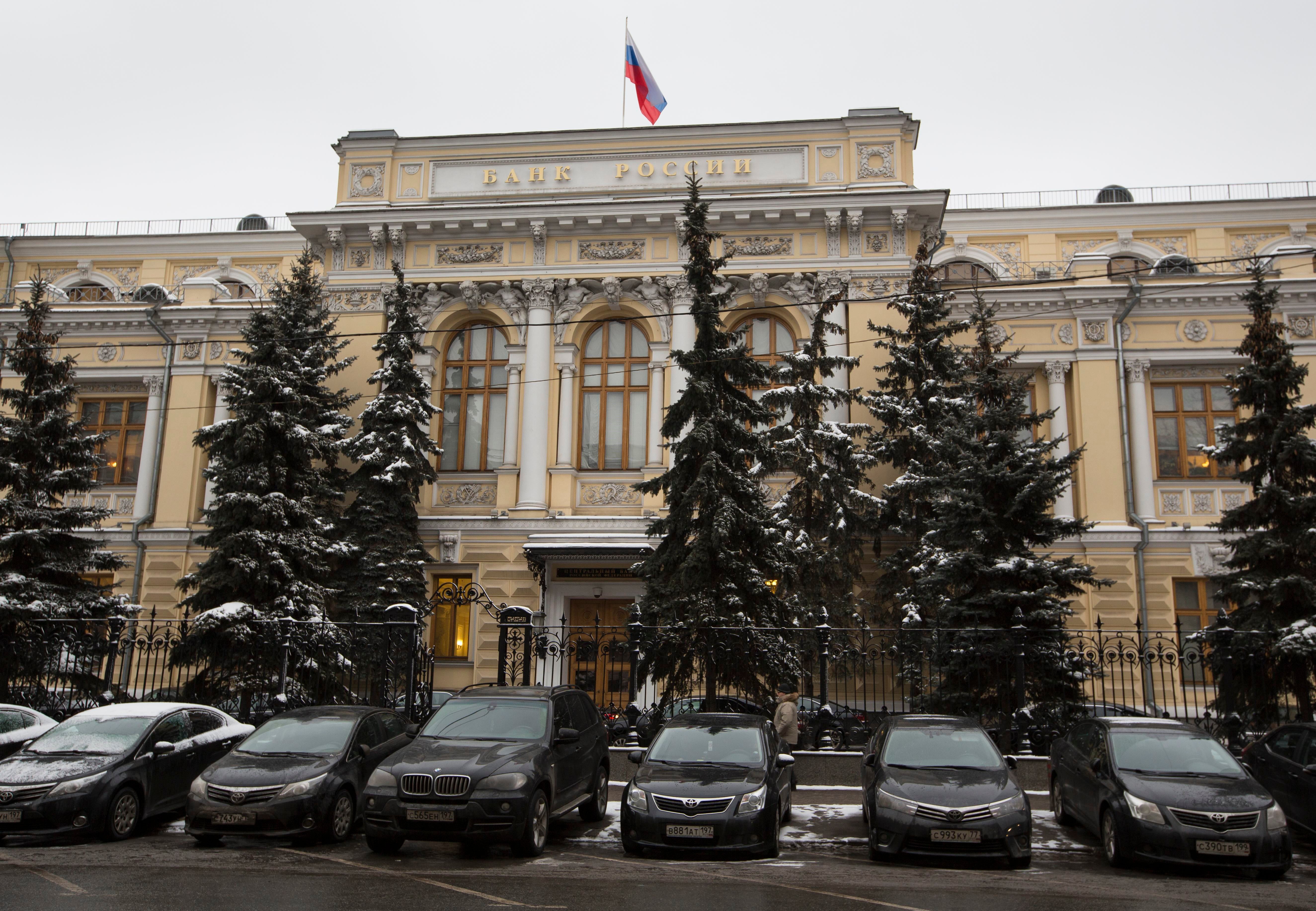Could the west confiscate $300bn of Russia’s assets to pay for Ukraine ‘war compensation’?
Any plan to seize the state’s cash and gold faces both practical and legal hurdles, writes Ben Chapman


Momentum is building behind an international plan to seize hundreds of billions of dollars from Russia’s central bank to cover the costs of “war compensation” for Ukraine.
Josep Borrell, the EU’s high representative for foreign policy, weighed in to support the proposals that would further increase financial pressure on Vladimir Putin.
Mr Borrell told the Financial Times he was “very much in favour”, pointing to a recent seizure by the US of Afghan central bank assets that has been earmarked to compensate victims of terrorism and provide humanitarian aid.
But the Central Bank of Russia (CBR) has many times more assets than its Afghan counterpart. Is a seizure a realistic possibility?
About half of Russia’s gold and foreign currency reserves, totalling $300bn (£243bn), have been frozen, meaning that the Kremlin cannot access them. This falls short of a seizure that would see foreign governments in Washington, London, Paris, Berlin and elsewhere confiscate Russia’s assets and potentially sell them off.
Washington is currently leading the charge but there is disagreement among US legal experts over whether such action would be possible, or legal.
The fifth amendment of the US constitution provides guarantees against government seizure of property “without due process of law”. But applies only to “persons”.
While the yachts and private jets of oligarchs are owned by persons, Russian central bank assets are the property of a foreign state. That means they aren’t covered by protections for private property against seizure by the US government, according to an opinion written by Laurence H Tribe, a former Harvard law professor.
“The Russian government would no doubt complain bitterly that liquidating its currency reserves was ‘thievery’, just as it did with the existing sanctions,” argues Mr Tribe. “But Russia’s continued violation of the most basic principles of international law and human rights – and the Ukrainian people’s dire needs – must count for more than its self-serving rhetoric.”
Seizing central bank assets is not unprecedented. In 2003, George Bush orded the seizure of $1.7bn in Iraqi funds held by US banks. Proceeds were allocated to aid the Iraqi people and to compensate victims of terrorism.
In 2012, after the US embassy in Tehran was stormed, Congress allowed frozen Iranian central bank assets to be used to settle lawsuits with the families of those who had died in Iranian terror attacks.
As recently as February 2022, president Biden signed an executive order to help preserve about $7bn of the frozen Afghan central bank assets held in the US for use in providing humanitarian aid.
Action against Russia would be different because current US laws allow for seizure from countries with which America has been involved in “armed hostilities”.
Some legal scholars believe that confiscation would not be legal under existing laws and therefore new legislation would be needed. A bill is currently moving through Congress titled the Asset Seizure for Ukraine Reconstruction Act, aimed at granting the requisite powers.
Even if it were able to legally seize Russian state assets, the impact would be limited. US institutions reportedly held only 6 per cent of the CBR’s total assets, or about $39bn at the start of 2022, according to unverified data released by the CBR on 11 April.
Germany, France, and the UK had much more – accounting for about $188bn in total, while Japan had another $57bn.
Gary Clyde Hufbauer and Jeffrey J Schott for the Peterson Institute for International Economics argue that action by Washington would set a precedent for others to follow.
However, Europe and Japan have a lot to lose if Moscow retaliates by cutting off energy supplies.
Japan’s prime minister, Fumio Kishida, indicated on Monday that he was in no mood for an immediate end to Russian oil imports. Implementing a ban on Russian oil imports would take time, he said.
“For a country heavily dependent on energy imports, it’s a very difficult decision,” Kishida told reporters.
However, if those supplies were cut off, it may not be disastrous for Japan. Russia accounted for about 4 per cent of Japanese oil imports last year.
For Europe, the impact would be considerably more severe.
Consequences for the EU of a dramatic fall in Russian energy imports would be catastrophic. The EU has been unable so far to agree on a plan for an embargo on Russian oil because it is seen by some member states as too damaging,
Being suddenly cut off from Moscow’s gas supplies would be much worse. Europe would suffer an immediate and extremely damaging hit to its economy. Rationing of supplies would be required and a deep recession all but inevitable.
The share of Russia’s reserves in Germany actually increased from 11 per cent in January 2021 to 16 percent in January 2022, indicating that Putin may believe that Germany’s dependence on Russian energy imports would persuade Berlin not to support tough sanctions.
So far, European capitals have surprised many observers with their tougher than expected approach to sanctions. However, fears remain that the reality of how those sanctions will fall well short of the rhetoric, blunting their usefulness as a weapon against Putin.
Until Europe makes credible efforts to rapidly reduce its dependence on Russian energy, those fears look to be well-founded.






Join our commenting forum
Join thought-provoking conversations, follow other Independent readers and see their replies
Comments